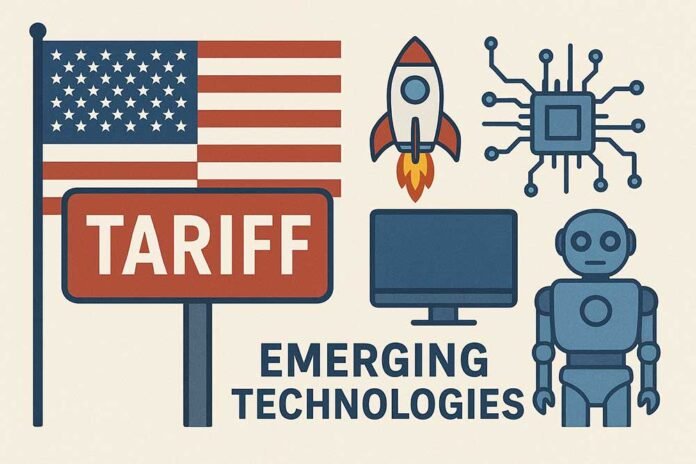“History repeats itself, first as tragedy, second as farce.” Karl Marx wrote this, reflecting on Hegel, in The Eighteenth Brumaire of Louis Bonaparte. Nearly two centuries later, the farce is upon us. The world has become a theatre where old mistakes are re-enacted with shinier props: artificial intelligence instead of steam engines, hypersonic missiles instead of cannons, climate models instead of oracles. Humanity seems less interested in learning from history than in speed running its errors.
The 21st century promised prosperity through trade, technology, and cooperation. What we got instead: tariffs, sanctions, trade wars, and wars without declarations, AI hype, climate catastrophes, and above all, a vacuum of leadership. We have the tools to solve crises, but no one with the will to use them. The bus is being driven by leaders who do not know the route — while passengers fight over the seats.
From Washington to Beijing, Brussels to Brasília, tariffs are back in fashion. Donald Trump thunders about Europe and laments that India and Russia are “lost to China.” The EU responds in kind. China builds alternative trade corridors.
India, meanwhile, plays the most delicate game of all. It has deepened trade with Russia, found new alignments with China on select fronts, and still courts the US for investment and defence. Washington, for its part, vacillates between threat and embrace: one day mulling tariffs on Indian exports, the next day calling India a “great friend” and a “special relationship.” The U-turns are dizzying, but India’s strategy is clear — to keep balanced relations with all, no matter how erratic others may be. It is balance as statecraft, survival as strategy.
But history’s warnings are conveniently ignored. The Great Depression worsened under protectionism. The Cold War arms race bled economies dry. Yet here we are, rehearsing the same play with higher stakes.
The 21st century promised prosperity through trade, technology, and cooperation. What we got instead: tariffs, sanctions, trade wars, and wars without declarations, AI hype, climate catastrophes, and above all, a vacuum of leadership. We have the tools to solve crises, but no one with the will to use them. The bus is being driven by leaders who do not know the route — while passengers fight over the seats
Defence budgets balloon, social spending shrinks. It is somehow easier to approve a fleet of fighter jets than to fund schools or flood defences. Political disturbances in the Middle East, Ukraine’s war of attrition, fragile South Asian democracies, the Pacific tug-of-war — all follow the same pattern: leaders reacting to crises they never bothered to prevent.
The irony: never have economies been this interdependent, and never has politics been this zero-sum. We are tied together in trade but torn apart in politics.
While tariffs grab headlines, the quiet revolution is already here: artificial intelligence. Generative AI, robotics, automation — not futuristic toys, but everyday realities.
The promise is immense: smarter logistics, medical breakthroughs, productivity gains. The peril is just as large: job losses, inequality, misinformation, and the uneasy question of who controls the machines.
On the battlefield, AI powers drones and cyberwarfare. In boardrooms, it parses data faster than analysts. In classrooms, students debate whether it is their tutor or their replacement.
But global leaders treat AI as another Cold War — a race to win, not a resource to manage. The US and China spar over chips, Europe drafts regulations, Russia experiments militarily, India courts investment. Meanwhile, the critical question is ignored: are we designing tools we control, or will they soon understand us better than we understand ourselves?
This is where “management” — usually confined to MBA classrooms — becomes a global necessity. Who is managing workforce transitions? Who sets ethical guardrails? Who ensures AI enhances society instead of destabilising it? The silence is telling.
While leaders haggle over tariffs and chips, the Earth issues reminders: wildfires in Europe, floods in Pakistan, droughts in Africa, heatwaves in India. Climate does not wait for summits or communiqués.
Defence budgets balloon, social spending shrinks. It is somehow easier to approve a fleet of fighter jets than to fund schools or flood defences. Political disturbances in the Middle East, Ukraine’s war of attrition, fragile South Asian democracies, the Pacific tug-of-war — all follow the same pattern: leaders reacting to crises they never bothered to prevent
The Sustainable Development Goals (SDGs), once hailed as our shared roadmap, are badly off track. Inequality is entrenched, poverty persists, emissions rise. Leaders talk green in speeches while approving coal plants in budgets.
Resources — both natural and human — are stretched thin. Water, minerals, forests, air depleting. Jobs, dignity, hope vanishing. Migration rises as climate refugees seek safety. Young populations in South Asia and Africa demand work their economies can’t provide.
And here lies a paradox rarely acknowledged: while some countries still struggle with population explosions, globally the young population is shrinking. Many societies are ageing rapidly. Shouldn’t we, then, treat our remaining human capital as precious? Shouldn’t we ensure people are well-nourished, educated, healthy, and equipped to use not just their IQ, but also their EQ and SQ — their emotional and social intelligence/quotients? Instead, billions remain underfed, undereducated, or underutilised. If human brains are our greatest natural resource, are we not squandering them?
If management is the art of allocating scarce resources wisely, then global management is failing spectacularly. We overexploit nature, underutilise people, and let the poor pay the heaviest price for problems they did not create. The question almost poses itself: by pouring billions into AI, aren’t we ignoring the most intelligent system ever created — the human being?
This is where “management” — usually confined to MBA classrooms — becomes a global necessity. Who is managing workforce transitions? Who sets ethical guardrails? Who ensures AI enhances society instead of destabilising it? The silence is telling
If humans are truly our most precious resource, you would think the world would treat them accordingly. Yet, somehow, the one skill that could channel our intelligence, energy, and potential — management — is treated as optional on the global stage. Often dismissed as MBA jargon, the realm of quarterly reports, pie charts, and fancy titles, management is really about foresight, communication, people, and priorities. And isn’t it ironic that these very qualities are exactly what the world’s leaders seem to lack?
Consider the record. In economics and finance, stability is a myth; markets wobble between hope and panic. Nations build walls rather than invest in people, letting talent rot and inequality deepen. Communication is reduced to soundbites, misinformation spreads faster than truth, and supply chains — once the crown jewels of globalisation — collapse at the slightest hint of a war or pandemic. We swim in data, yet gasp for wisdom. Ethics and sustainability are preached like sermons, but rarely practiced.
A competent manager anticipates risks, aligns stakeholders, and plans beyond the next quarter. Imagine if global politics operated that way. Instead, we get firefighting: leaders sprint from one blaze to another, each pretending to have saved the building, while no one asks why it keeps catching fire. The cruellest irony? Management — the very discipline that could save the world — is celebrated in theory but abandoned in practice, where it is needed most.
If management is the art of allocating scarce resources wisely, then global management is failing spectacularly. We overexploit nature, underutilise people, and let the poor pay the heaviest price for problems they did not create. The question almost poses itself: by pouring billions into AI, aren’t we ignoring the most intelligent system ever created — the human being?
The United Nations is paralysed. The US, self-proclaimed “leader of the free world,” looks inward. The European Union regulates eloquently but acts hesitantly. China asserts power but breeds suspicion. Russia thrives on confrontation.
India plays balancer: trading with Washington, buying oil from Moscow, negotiating in Riyadh, managing Beijing across a tense border. Yet India too has its contradictions — a rising power with unresolved inequities at home.
The Middle East is a chessboard of shifting alliances. Pakistan and Bangladesh remain locked in insecurities.
It is a global orchestra with no conductor. Everyone plays louder, no one plays together. The bus has too many drivers, no map, and passengers who won’t stop fighting.
Marx also reminded us: “Men make their own history, but they do not make it as they please; they do not make it under self-selected circumstances, but under circumstances existing already, given and transmitted from the past. The tradition of all dead generations weighs like a nightmare on the brains of the living.”
That nightmare feels familiar today. The trade-wars echo the 1930s, the AI race recalls the nuclear race, and the climate crisis mirrors the collapse of resource-greedy empires. Rome exhausted its soil; the Cold War exhausted treasuries. Now we risk exhausting both the planet and patience.
A competent manager anticipates risks, aligns stakeholders, and plans beyond the next quarter. Imagine if global politics operated that way. Instead, we get firefighting: leaders sprint from one blaze to another, each pretending to have saved the building, while no one asks why it keeps catching fire. The cruellest irony? Management — the very discipline that could save the world — is celebrated in theory but abandoned in practice, where it is needed most
As we began with Hegel, perhaps it is fitting to return to him. The irony is this: progress is messy, perhaps even necessary in its contradictions — a truth Hegel himself insisted on. But the question remains: can we learn from history’s chaos, or are we condemned to repeat it, only faster and with deadlier tools?
The world is not short of resources, technology, or knowledge. It is short of leaders who can manage. Leaders who are proactive, not reactive; visionary, not myopic; managerial, not just political.
But who will take the responsibility? The superpowers, divided against themselves and replaying old rivalries? The nations, draped in flags but stripped of foresight? The institutions, swollen with bureaucracy yet starved of credibility? The powerful, who measure success in profits, not principles? Or the individuals — ordinary people told they are powerless, yet expected to shoulder the burden when leaders fail?
We don’t know. What we do know is that history judges not only those who act, but also those who fail to act. Responsibility is passed around like a hot potato — no one wants to hold it, yet everyone is eager to claim the credit when something goes right.
The world does not just need a superpower. It needs a super-manager.
The writer is an MBA candidate, at the Institute of Management-Nirma University. The views expressed are personal and do not necessarily carry the views of Raksha Anirveda






